
7 Memoirs on Learning a New Language
I enjoy reading memoirs and have found a small number of people writing in English about learning another language. Naturally these are different from books that help you learn to read in another language, children’s bilingual titles, or apps for audiobooks to use for language learning. Rather these are books by people who have learned another language either as a child or as an adult. Memoirs about learning a language can be hard to find. Here is a list of some titles I have stumbled across over the years.
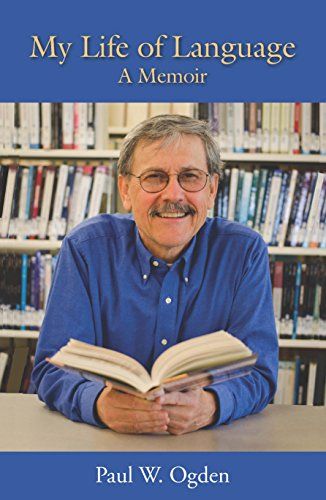
My Life of Language: A Memoir by Paul W. Ogden
Ogden was born deaf in a time when very negative attitudes toward deafness were common. In this memoir, he describes his childhood and growing up in a family of hearing and deaf children. Ogden considers communication frequently and deeply, and has a very understandable way of presenting the challenges he faced as a deaf child and adult.
He writes that while almost anyone can understand his speech now, “The crucial point is whether they’re interested in hearing me or not. Some people are embarrassed by the process. Others, it seems, don’t want to be bothered. This is a pity, because just as they might learn something about the rest of the world by speaking with a foreigner, they would also learn from ‘talking’ with a deaf person.” Given that his book has few reviews on Goodreads, I would wager that this is one of the best memoirs you’ve never heard of. Just keep in mind a content warning for suicide.
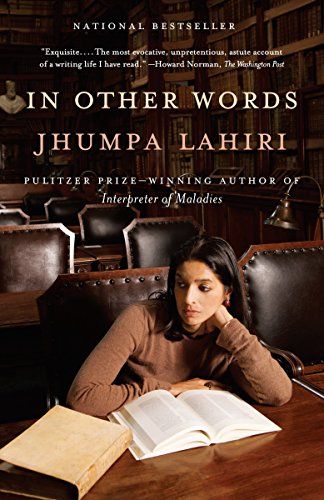
In Other Words by Jhumpa Lahiri
Lahiri is an accomplished writer in English whose interest in Italian resurged after the publication of the books she is probably better known for. As an aside, if you are not familiar with her English books you can easily get started by reading these five best titles. I loved her debut short story collection and her later work as well. However, if you’re interested in learning a language as an adult, In Other Words may be for you. I found it fascinating the way she wrote about her Italian language learning as one that she pursued always next to English. She writes that in this way, she engaged in a kind of mental exercise that was beneficial if a little overly safe.
In 2011, she decided to take her first “true departure” as she calls it, and moved to Italy. Not everyone can move to a new country in pursuit of a new language, but you can live vicariously through Lahiri if you read this book. If you’re still not sold on this short collection of essays, you might try reading Rioter Courtney Rodgers’s reaction to her reading of it for a deeply felt perspective. If the Italian part intrigues you, Lahiri included her original Italian in the book, so you can read both or only one version as suits your needs and interests. Many of the entries are also short so you could easily dip in and out if that appeals to you.
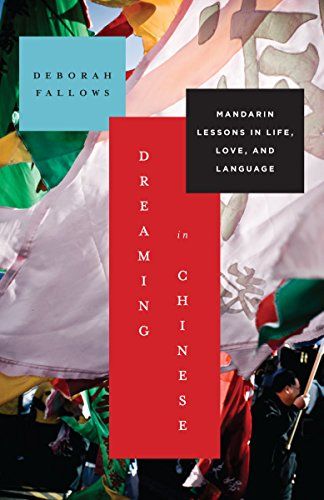
Dreaming in Chinese: Mandarin Lessons in Life, Love, and Language by Deborah Fallows
Fallows describes herself as a “seasoned ex-pat” who moved to China for three years. Despite having undertaken a few visits and studying Mandarin in classes before landing, she describes her arrival as difficult. Her book is an interesting romp through tidbits about language and living in her temporary homeland. While it may not satisfy a desire for a more comprehensive look at China and Chinese history, it is a fast and interesting read that will appeal to anyone also on a journey to learn another language or curious about doing so as an adult when one can catalogue all one’s own questions and curiosities. As an aside, if you are looking for more reading focused on Chinese history, you should try this list.
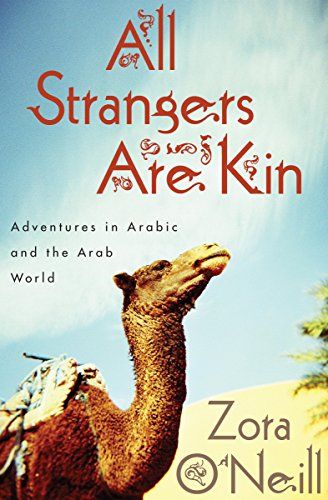
All Strangers are Kin: Adventures in Arabic and the Arab World by Zora O’Neill
O’Neill became obsessed with Arabic at one point in her life and tried her best to become conversational in the language before life intervened. After a decade long absence, she decided to return to one of her interests and chose to travel and live in several Arabic-speaking countries including Egypt, Morocco, and the United Arab Emirates over the course of a year.
There are a few places where she goes into some depth about Arabic as a language (and for someone with little background on the language these may be a bit mystifying), but there are also many memorable and funny moments during her travels. And while I have to admit I would have preferred if she had chosen one city and one main dialect to focus on, this is an engrossing read about the very different places she visits, learning from the various people she encounters and speaking as much Arabic as her brain will allow her.
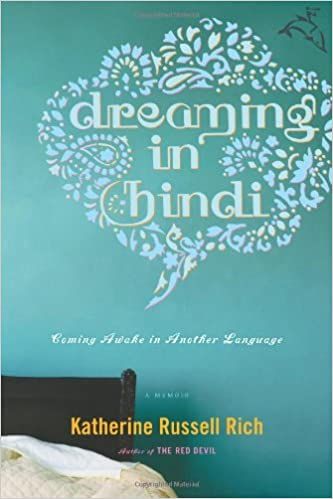
Dreaming in Hindi: Coming Awake in Another Language by Katherine Russell Rich
Rich set out to learn Hindi at a time in her life that things were not exactly going according to plan. She had recently been downsized from a magazine editing job and found herself at a crossroads of sorts. This is how she found herself on a plane headed to Udaipur, with the plan of mastering Hindi.
Rich’s writing and research are really fascinating, and I would wager that most adult learners would find something intriguing in this book, even if their particular language of choice is not Hindi. As she suggests in her original conception of the project, anyone can lose their way in French or Spanish, but choosing a language far from the Romance language family gives her an interesting perspective and journey as she learns it. Of the titles on this list, this is the one that focuses most on learning a language as a an adult with all its potential triumphs and pitfalls.
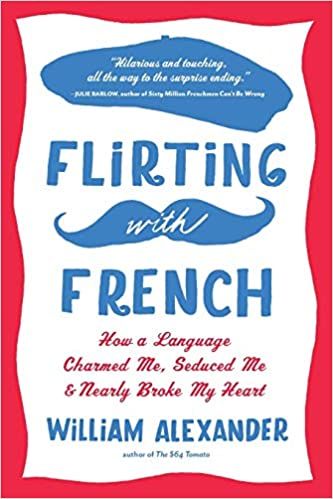
Flirting With French: How a Language Charmed Me, Seduced Me, & Nearly Broke My Heart by William Alexander
Alexander fell in love with French as a young college graduate, but did not set out to master it until he was in his late 50s. He takes the reader along with him as he makes some classic errors like actually expecting people to know where they are and be able to use a map, and ordering from a menu he only vaguely understands. Along the way, he explains how his fascination with the language began and includes some history for the curious.
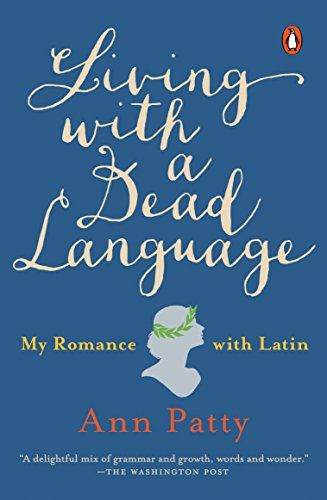
Living With a Dead Language: My Romance with Latin by Ann Patty
After decades in publishing and in New York City, Patty decided to step out of that world and move to the country. On a search for new projects to busy herself with, she decided to take up Latin, a commitment that was met with some surprise by others around her. However, her fascination with words is infectious and her explanation of how her life and the life of her family intertwined is also fascinating. As someone who does not share her love of this dead language (with my apologies to my middle school Latin teacher), I am happy to say that her memoir is still engrossing.
And a Few More that Aren’t About Language Learning
Although not about language learning in the traditional sense, another memoir that might interest you is Quiara Alegría Hudes’s My Broken Language. Hudes grew up the daughter of a Puerto Rican mother and a Jewish father. She writes beautifully about how she learned to see Spanish and English in different ways. I particularly recommend the audio for this as she reads it very well.
Another fascinating memoir, E.J. Koh’s The Magical Language of Others, is made up of English translations of letters her mother wrote to her in Korean after her mother returned to South Korea when Koh was 15. Koh includes some notes at the beginning on the translations and even published the handwritten letters. Her mother wrote in simplified language and addressed her as a child, using what Koh calls “kiddie diction.” I cannot read the original letters, but I wish I could. The English translations are full of love, heartache and all the complicated emotions of someone far from the person they love. While this is not about language learning, there is much to consider in the language of the letters themselves (be aware that there is some mention of eating disorders and suicide). Give this one a read if the premise appeals to you. I do not think you will be disappointed.
Those are my language learning memoirs (with a few extra titles thrown in for good measure). I hope some of these inspire you to read about learning another language. There are so many ways to do it, but as an adult, it can be intimidating. Hopefully some of these titles will interest you and help those of you who are on your own language learning journey.








